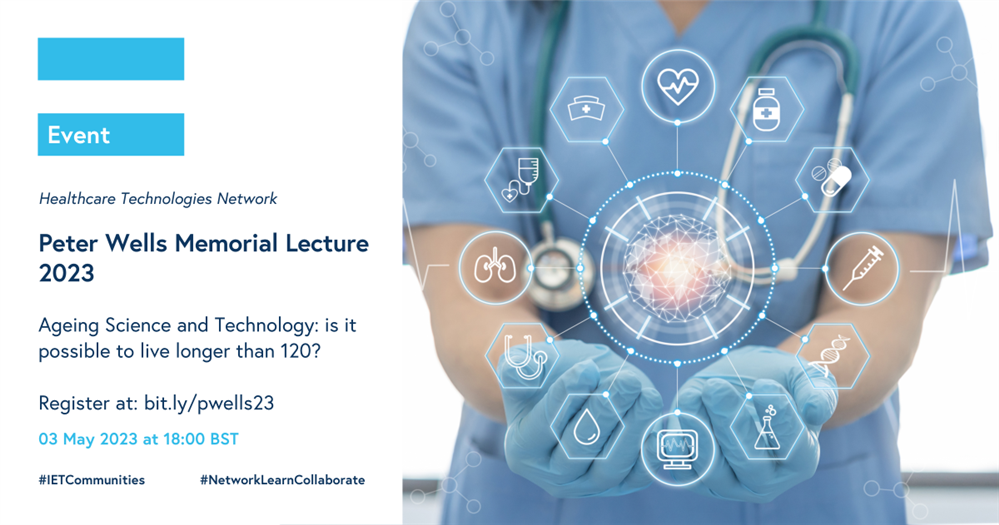On May 3rd, the IET's Healthcare Technologies Network is holding an evening lecture at IET London: Savoy Place titled 'The Peter Wells Memorial Lecture 2023: Ageing Science and Technology: is it possible to live longer than 120?'.
This lecture is the latest in a series of annual events hosted by the Joint Biomedical Engineering Group and held in honour of the late Professor Peter Wells, but how much do you know of him him and his work? Read on to learn more.
A British physicist and engineer, Wells is widely recognised for his contributions to the field of medical ultrasound. He began his career as a researcher at the National Physical Laboratory in the United Kingdom, where he focused on the application of ultrasound in medicine. His pioneering work paved the way for the use of ultrasound as a diagnostic tool and as a surgical aid.
One of Wells' most significant achievements is his development of the first ultrasound scanner capable of producing real-time images of the human body. This breakthrough, known as the "compound contact scanner", allowed for high-resolution imaging of organs and tissues in real-time, without the need for invasive procedures. This revolutionary technology transformed the field of diagnostic imaging, enabling doctors to detect and diagnose a wide range of medical conditions, from tumors to cardiovascular diseases, in a safe and efficient manner.
Wells' contributions to medical ultrasound extended beyond diagnostic imaging. He also played a pivotal role in the development of ultrasound as a surgical tool. He was instrumental in the advancement of minimally invasive surgical techniques, also known as "keyhole surgery", which uses ultrasound guidance to perform precise and targeted surgical procedures with minimal incisions. This has resulted in reduced surgical risks, faster recovery times, and improved patient outcomes.
Furthermore, Wells' work has had a significant impact on obstetrics and gynaecology. His innovations in ultrasound technology have revolutionised prenatal care, allowing for early detection of fetal abnormalities and monitoring of fetal development during pregnancy. This has greatly improved the safety and accuracy of prenatal diagnosis and has helped in the early intervention and treatment of various conditions, leading to healthier outcomes for both mothers and babies.
Wells received numerous awards for his pioneering work, including the prestigious Gold Medal from the Royal College of Radiologists and the IEEE Ultrasonics, Ferroelectrics, and Frequency Control Society's Achievement Award. His research has been published in leading scientific journals, and he was invited to speak at international conferences and symposiums.
In addition to his research and technical contributions, Wells was actively involved in teaching and mentoring young scientists and engineers in the field of medical ultrasound. He has supervised numerous PhD students and has been a professor of Medical Physics at the University of Aberdeen in Scotland. His dedication to education and mentorship has helped shape the future of medical ultrasound and has inspired countless researchers and practitioners to continue pushing the boundaries of this field.
Peter Wells is a pioneering figure in the field of medical ultrasound whose groundbreaking work has transformed the landscape of modern medicine. His contributions to the development of ultrasound as a diagnostic and surgical tool have revolutionized medical practice, improving patient care and outcomes. Through his innovations, dedication to research, and commitment to education, Wells has left an indelible mark on the field of medical ultrasound, and his legacy continues to inspire and influence the next generation of scientists, engineers, and healthcare providers.
Join us next week as we celebrate Peter Wells at our Memorial Lecture where Board of Trustees member, Dr Ronjon Nag will be exploring the question 'Ageing Science and Technology: is it possible to live longer than 120?'. Registration is free and we very much hope to see you there!

